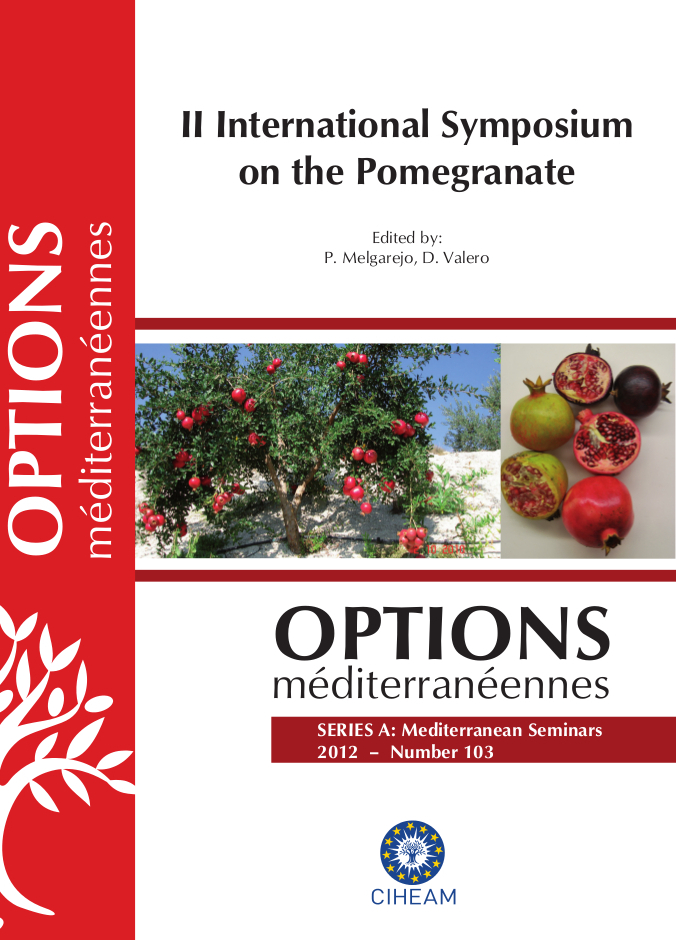| Article précédent | p. 121-128 | Article suivant |
Usefulness of maximum diurnal trunk shrinkage as a continuous water stress indicators of pomegranate (Punica granatum) trees
The objective of this research was to asses the feasibility of using maximum diurnal trunk shrinkage (MDS) obtained by means of LVDT sensors, as a plant water stress indicators for pomegranate trees. The experiment was carried out with mature trees grown in the field under three irrigation regimes: (i)control (well watered trees); (ii) trees continuously deficit irrigated at 50% of the control regime (SDI); and (iii) trees that had a summer water stress cycle being irrigated at 25% of the control rates only in July and August (RDI). Control trees maintained lower MDS values than the SDI ones. In the RDI treatment, as water restrictions began, there was a slow increase in MDS, in correspondence with a decrease in stem water potential (Ψstem). When water was returned at full dosage, the RDI recovered to MDS and Ψstem values similar to the control. However, lower MDS for a given values were observed as the season advanced. The magnitude of differences between well watered and deficit irrigated trees was much larger in the case of MDS than for Ψstem. The tree-to-tree variability of the MDS readings was more than four times higher than for Ψstem.
- [ Afficher ]
- [ Télécharger ]
- [ Exporter la citation ]
Vous pouvez télécharger la citation au format :
- [ Imprimer ]
-
Mots-clés
IRRIGATION, POTENTIEL HYDRIQUE, TIGECiter cet article
Badal E., Bues E., Guerra D., Puerto H., Bonet L., Perán F., Nicolás E., Bartual J., Intrigliolo D.S. Usefulness of maximum diurnal trunk shrinkage as a continuous water stress indicators of pomegranate (Punica granatum) trees. In : Melgarejo P. (ed.), Valero D. (ed.). II International Symposium on the Pomegranate. Zaragoza : CIHEAM / Universidad Miguel Hernández, 2012. p. 121-128. (Options Méditerranéennes : Série A. Séminaires Méditerranéens; n. 103). 2. International Symposium on the Pomegranate, 2011/10/19-21, Madrid (Spain). http://om.ciheam.org/om/pdf/a103/00006919.pdf



